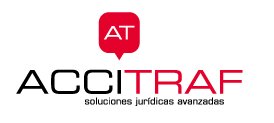Best DUI & DWI Lawyers in Salamanca
Share your needs with us, get contacted by law firms.
Free. Takes 2 min.
List of the best lawyers in Salamanca, Spain
About DUI & DWI Law in Salamanca, Spain
Driving under the influence (DUI) and driving while intoxicated (DWI) are serious offenses in Salamanca, Spain. Spanish law uses the term “conducción bajo los efectos del alcohol o drogas” to describe these violations. The aim of these laws is to ensure road safety by prohibiting individuals from operating vehicles when impaired by alcohol or drugs. The local authorities in Salamanca enforce these laws strictly, and consequences can include heavy fines, license suspensions, and even imprisonment depending on the severity of the offense.
Why You May Need a Lawyer
There are various situations in which someone may need legal representation concerning DUI or DWI charges in Salamanca. Common scenarios include:
- If you have been stopped at a police checkpoint and failed a breathalyzer or drug test
- If you are accused of causing an accident while under the influence
- If you face charges involving repeat offenses
- If the police have confiscated your license or impounded your vehicle
- If you need to contest the accuracy of sobriety or drug tests administered
- If your case involves injury or death of third parties, resulting in aggravated charges
A specialized DUI & DWI lawyer can help you understand the charges, evaluate evidence, propose potential defenses, and represent you in court if needed.
Local Laws Overview
DUI & DWI laws in Salamanca are guided by Spain's national traffic code, but enforcement and some procedures are managed by local authorities. Key points to consider include:
- Legal Blood Alcohol Limit: The legal blood alcohol concentration (BAC) is generally 0.5 grams per liter for most drivers, and 0.3 g/l for professional drivers and drivers with less than two years of experience.
- Drug Testing: Police can require saliva or blood tests if impairment by drugs is suspected, with a zero-tolerance policy for drugs in the system.
- Penalties: Sanctions can include fines of up to 1000 euros, license suspension from 1 to 4 years, community service, and imprisonment for aggravated or repeat offenses.
- Checkpoints: Sobriety checkpoints are common in Salamanca, especially during holidays and festivals, and refusal to undergo testing is treated as a criminal offense.
- Court Proceedings: DUI & DWI cases can be handled as administrative or criminal matters, depending on the level of impairment and if aggravating circumstances are present.
Frequently Asked Questions
What is considered being "over the limit" in Salamanca?
You are considered over the limit if your BAC exceeds 0.5 g/l for most drivers, or 0.3 g/l for professionals and new drivers.
What happens if I refuse to take a breathalyzer test?
Refusing to submit to a breathalyzer or drug test is a criminal offense, and can lead to arrest, fines, and license suspension.
Can I lose my driving license for a first-time DUI offense?
Yes, a first-time DUI can result in a temporary loss of your driving license, even if no accident has occurred.
Do penalties increase for repeat offenses?
Repeat offenses are treated more severely, with higher fines, longer license suspensions, and possible imprisonment.
Are there criminal charges associated with DUI or DWI?
If your BAC is above 0.6 g/l, or if there are aggravating factors such as accidents or injuries, you may face criminal charges in addition to administrative penalties.
Will a DUI or DWI conviction show on my criminal record?
Serious DUI and DWI convictions in Spain can appear on your criminal record, especially if handled as a criminal rather than administrative case.
How are drug tests administered by police?
Police often conduct saliva tests, with confirmation by blood analysis if needed. Refusing the test is a criminal offense.
Can I challenge the results of a sobriety or drug test?
Yes, your lawyer can investigate whether correct procedures were followed and may challenge the validity of test results in court.
Will I need to appear in court?
For criminal charges or serious administrative offenses, you will generally need to appear in court. Minor offenses may be resolved via administrative proceedings.
How can a lawyer help me with my case?
A DUI & DWI lawyer can help you understand your rights, review the evidence, negotiate with prosecutors, and defend you in court or administrative hearings.
Additional Resources
For further assistance and reliable information regarding DUI & DWI in Salamanca, consider reaching out to the following resources:
- Dirección General de Tráfico (DGT): The national traffic authority provides guidance on DUI and traffic laws.
- Jefatura Provincial de Tráfico de Salamanca: Local office responsible for enforcing traffic regulations and managing administrative procedures.
- Colegio de Abogados de Salamanca: The local bar association can help you find qualified legal professionals specializing in DUI & DWI cases.
- Local Police Stations: For immediate support and official reports regarding DUI incidents.
Next Steps
If you are facing DUI or DWI charges in Salamanca, Spain, it is important to act quickly to protect your rights and interests. Consider the following steps:
- Gather all relevant documents, such as police reports, test results, and notices from authorities.
- Contact a lawyer specializing in DUI & DWI as soon as possible to review your case and guide you through your legal options.
- Follow the advice of your legal representative closely regarding deadlines, hearings, and statements to the police or court.
- If your license has been suspended, ask your lawyer about any possible appeals or provisional permits.
- Stay informed about your obligations and potential penalties, ensuring you comply with any court or administrative orders.
A knowledgeable legal advisor can help protect your rights, minimize penalties, and navigate the complexities of local laws. Seeking professional legal support is often the best way forward.
Lawzana helps you find the best lawyers and law firms in Salamanca through a curated and pre-screened list of qualified legal professionals. Our platform offers rankings and detailed profiles of attorneys and law firms, allowing you to compare based on practice areas, including DUI & DWI, experience, and client feedback.
Each profile includes a description of the firm's areas of practice, client reviews, team members and partners, year of establishment, spoken languages, office locations, contact information, social media presence, and any published articles or resources. Most firms on our platform speak English and are experienced in both local and international legal matters.
Get a quote from top-rated law firms in Salamanca, Spain — quickly, securely, and without unnecessary hassle.
Disclaimer:
The information provided on this page is for general informational purposes only and does not constitute legal advice. While we strive to ensure the accuracy and relevance of the content, legal information may change over time, and interpretations of the law can vary. You should always consult with a qualified legal professional for advice specific to your situation.
We disclaim all liability for actions taken or not taken based on the content of this page. If you believe any information is incorrect or outdated, please contact us, and we will review and update it where appropriate.














